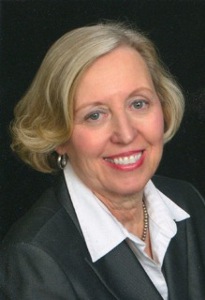Guest column

by Don Ash
There is no easy solution to reducing crime in our communities. As your leaders in law enforcement, we do all we can to enforce the law, catch the bad guys, prosecute them, and get them off the streets. That’s our job, and it’s our officers’ top responsibility.
But we also take seriously our responsibility to prevent crime and violence—to get ahead of the problems and to avoid the price victims, the perpetrators, and our communities pay for crime.
This demands we put resources into this effort to help our most vulnerable children and families. Research shows that parenting education can be an important component in supporting and developing healthy relationships between children and their parents, setting the stage for strong families and children ready for school success, and that our communities are safer because of it.
Despite this knowledge and experience, we see our state moving in the wrong direction in terms of these critical investments. We are concerned with the Governor’s proposal to sweep more than $30 million from the Kansas Endowment from Youth and the Children’s Initiatives Fund. And Tuesday, the Social Services Budget Subcommittee in the Kansas Legislature voted to strip all Parents as Teachers funds from CIF. This means that there will not be any funds from KSDE for PAT programs in Kansas. Let us detail two of the most important investments that make our jobs as law enforcement officials more effective.
One intervention we value is high-quality coaching for our most vulnerable mothers and children. Providing this coaching, which is voluntary on the mother’s part, provides the support and guidance that new mothers need. There are substantial health and educational aspects to parent coaching—improving infants’ health though good pre-natal care; children are more likely to be identified at an earlier age if there are health or developmental concerns which leads to referral to school and community services for early intervention; teaching mothers how to read and talk to their children resulting in higher reading scores at Kindergarten, 3rd, and 4th grade; and higher scores in symbolic development, math concepts, written language, and oral communication—that can be achieved through good programs such as Early Head Start and Parents as Teachers. And law enforcement especially values the reduction in child abuse and neglect, and infant mortality that results from some high-quality programs.
Moreover, both the mothers and children who participated in the Nurse-Family Partnership were half as likely to become involved in crime over time as similar families who did not get the benefits of home visiting. The return on investment for this program? More than $17,000 per family after subtracting the costs, with most of that savings coming from crime reduction.
The evidence is quite clear that low-income children who participate in a high-quality pre-k program have significant advantages compared to their peers who miss out on the pre-k experience. Again, like the home visiting experience, there are significant educational benefits, including limiting the education gap between poor and middle-class kids. There are really important social development skills that kids learn in pre-k—like following directions, sticking to task, collaboration, and controlling one’s emotions—that can last a lifetime.
But we in law enforcement value the evidence that shows that high-quality pre-k can substantially reduce the chances that those children become involved in crime. Long-term research in Chicago has shown that children who did not participate in high-quality pre-k were 70 percent more likely to be arrested for a violent crime by age 18. Another study shows the return on investment: approximately $5 savings for each dollar invested.
Since 1999, the Kansas Endowment for Youth Fund—which was established by a financial settlement with the tobacco companies—provided the funding to make progress in improving the lives of at-risk kids. This source of funding has been critical to the progress we’ve been making.
However, that funding has been stagnant since 2007, thus making it impossible to maintain the programs it has been supporting, much less moving these investments in kids forward. Despite the full intention of the legislature to support kids, the funds in the Kansas Endowment for Youth have been diverted to other areas.
We ask Gov. Brownback and our representatives in the legislature to carefully consider the importance of maintaining the funding in the Kansas Endowment for Youth Fund. It prevents crime by helping our most vulnerable kids get the right start in life. This investment is of utmost importance, and the gains to our state are enormous. The short-sighted thinking leading to these cuts now will lead to very expensive costs to all Kansans through the criminal justice and jail-incarceration systems later.
Donald Ash is the Sheriff of Wyandotte County and a member of Fight Crime: Invest in Kids.

